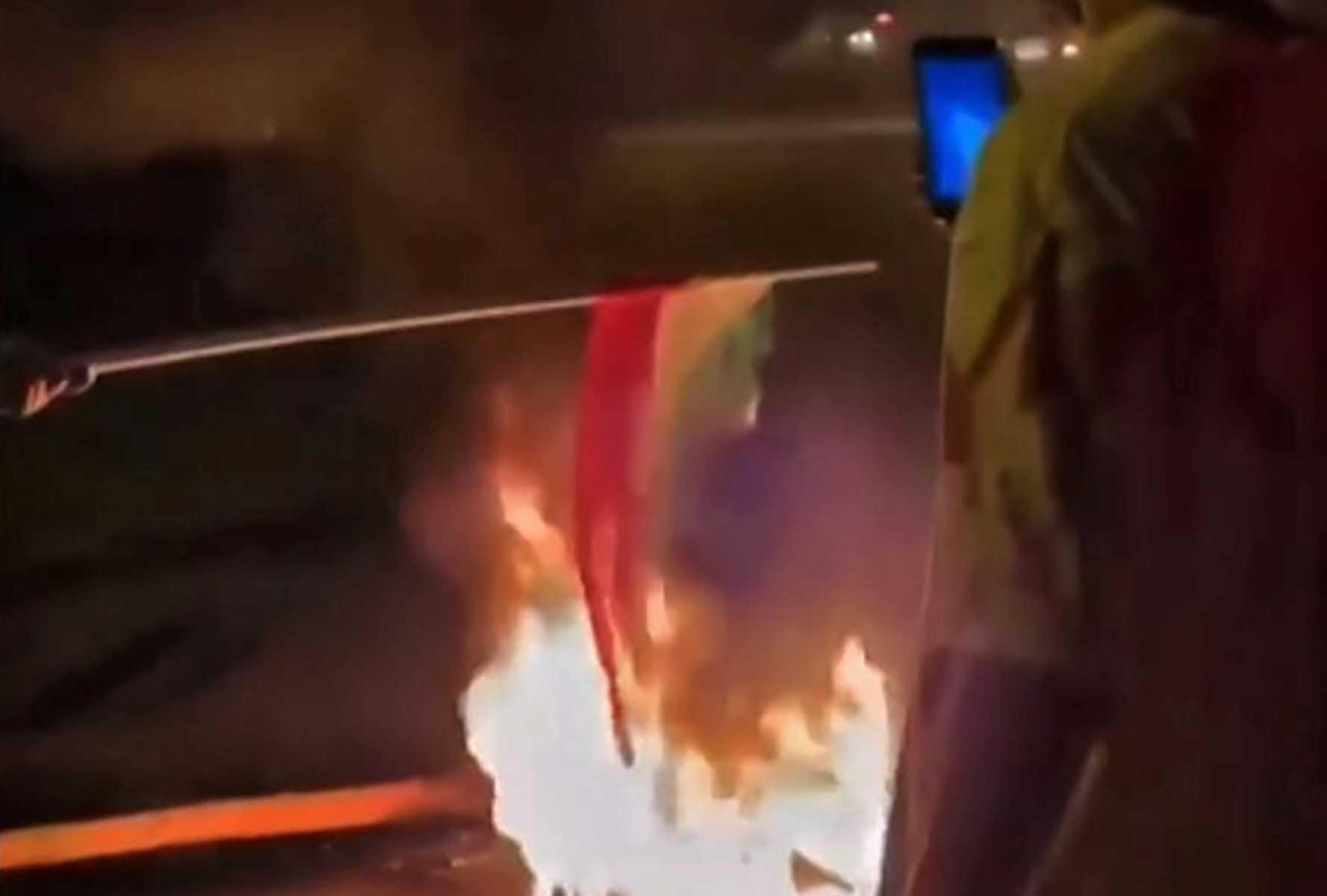Iran launches deadly missile, drone strikes on Kurdish groups in Iraq
An Iranian foreign ministry spokesman says the latest cross-border military action is necessary to 'preserve the security' of Iranian territory.
Just In
Iran launched new cross-border missile and drone strikes Monday against Iraq-based Kurdish opposition groups it accuses of stoking unrest at home, killing at least one person according to local authorities.
Iran has been rocked by almost two months of protests sparked by the death of Kurdish-Iranian woman Mahsa Amini, 22, after her arrest by the notorious morality police for allegedly breaching the strict dress code for women.
Tehran accuses Kurdish-Iranian opposition groups based in northern Iraq of stoking the "riots". Iran already launched attacks in late September that killed more than a dozen people in Iraq's autonomous Kurdistan region.
In Monday's barrage, "five Iranian missiles targeted a building used by the Kurdistan Democratic Party of Iran", the mayor of Koysanjaq in Iraqi Kurdistan, Tariq al-Haidari, told AFP.
The region's health ministry said "one person is dead and eight were wounded. They are Iranian Kurds."
Plumes of black smoke billowed into the sky after the strikes, in videos shared on social media from the mountainous Kurdistan region.
Another four drone strikes targeted bases of the Iranian Communist Party and the Iranian Kurdish nationalist group Komala in Iraq's Zrgoiz region, said Atta Seqzi, a Komala leader.
The groups had been "warned of the imminence of the strikes" and evacuated the sites, he said, adding that they had suffered "no death or injury".
Later Monday Iraq's foreign ministry "condemned with the greatest severity" the strikes which, it said, "encroach upon Iraqi sovereignty."
In Iran, a commander of the Islamic Revolutionary Guard Corps, General Mohammad Taqi Osanlou, confirmed that "we struck targets located along the border and 80km from the border" with missiles and drones.
He charged that those targeted "were terrorists that have been active in the riots these last few months".
Speaking on state television, Osanlou warned of further strikes unless Iraqi Kurdish authorities expel the Iranian Kurdish groups, claiming that "we had already requested that the local government intervene, but it did not do anything".
An Iranian foreign ministry spokesman argued that the latest cross-border military action was necessary to "preserve the security" of Iranian territory.
'Settle scores'
The United Nations Mission in Iraq said it condemned "renewed Iranian missile and drone attacks... which violate Iraqi sovereignty."
"Iraq should not be used as an arena to settle scores and its territorial integrity must be respected. Dialogue between Iraq and Iran over mutual security concerns is the only way forward."
The US also condemned the attacks and in a statement Monday evening accused Iran of "repeatedly and brazenly" violating Iraqi sovereignty.
Washington called on Iran "to stop these attacks and refrain from further threats against Iraq’s territorial integrity".
The cross-border strikes in September saw Iraq's federal government in Baghdad call in the Iranian ambassador.
The UN mission at the time warned that such "rocket diplomacy is a reckless act with devastating consequences".
Iraqi Kurdistan hosts several Iranian Kurdish opposition groups which have in the past waged an armed insurrection against Tehran.
In recent years their activities have declined, but the wave of protests in Iran has again stoked tensions.
The protests in Iran quickly moved beyond Kurdish areas into a broad nationwide movement that continues to rock the Islamic republic, despite a state crackdown that has killed 326 people according to the Oslo-based group Iran Human Rights.
On Monday, the European Union hit more than 30 senior Iranian officials and organisations with sanctions over the crackdown on protesters, and the supply of drones to Russia.
Pressure on Tehran tightened further with the UN's Human Rights Council announcing it would hold a Nov 24 session on "the deteriorating human rights situation" in Iran.
Beyond the recent strikes from Iran, the Kurdish region of Iraq is also often hit by Turkish military action targeting the Kurdistan Workers' Party (PKK).
The PKK, designated a terrorist group by Ankara and its Western allies, has kept up a deadly insurgency for Kurdish self-rule in southeastern Turkey since the 1980s and maintains rear bases in Iraq.
Iraq's new Prime Minister Mohammed Shia al-Sudani, speaking in Baghdad two days earlier, said that "we reject aggression from any country, whether it be Iran or Turkey" and vowed that Iraq will "take all measures" in line with international law.
Subscribe to our newsletter
To be updated with all the latest news and analyses daily.
Most Read
No articles found.
